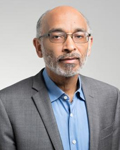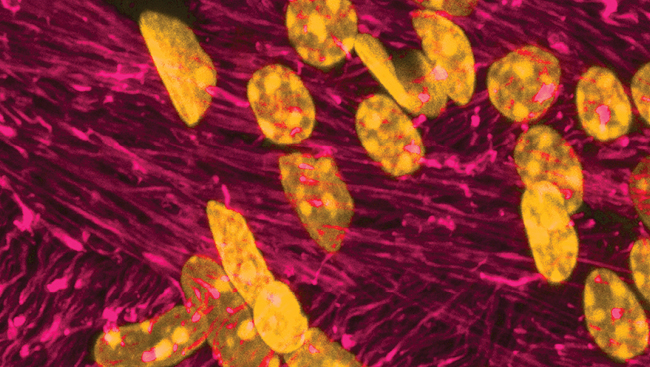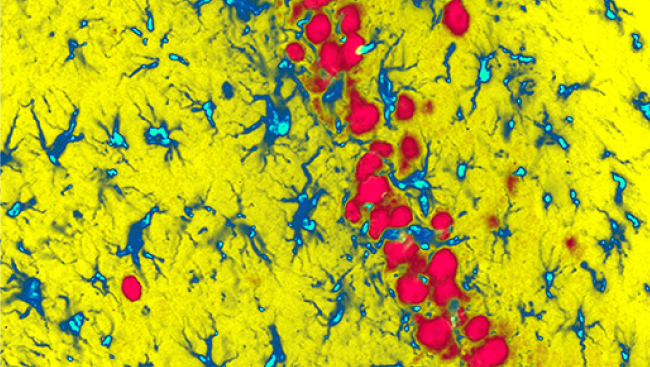Life Balance in Academic Medicine: Confessions of a Physician-Scientist
- Featured in:
- Meet-the-Experts
This a text-only summary from Neuroscience 2017.
This resource was featured in the NeuroJobs Career Center. Visit today to search the world’s largest source of neuroscience opportunities.
Emery Brown, professor of anesthesia at Harvard Medical School, discusses his career trajectory as a physician-scientist and his work-life balance. He delivered this talk during SfN’s Meet-the-Expert Series at Neuroscience 2017. The text below has been condensed and lightly edited and offer highlights from his talk.
Transitioning From Romance Languages to Circadian Rhythms
I started out as an undergraduate at Harvard, majoring in romance languages. I knew I was going to go to medical school. I figured I would work for the World Health Organization, traveling around the world and stamping out diseases.
However, in my sophomore year, my roommates concentrated in economics, and they talked like they understood the world. I then switched into economics, and in my junior year, I switched my major to applied mathematics.
I also did an undergraduate thesis, and I wrote about studying outcomes from high-risk surgery. It was funded by the anesthesiology department at Massachusetts General Hospital. I didn't solve an earth-shattering problem, but it taught me how to formulate a problem, research it, and write it up.
I knew I wanted to do the MD/PhD program at Harvard, so I needed to learn more mathematics. I also wanted to kill two birds with one stone. I knew Spanish, and I'd been proficient in French early on in high school, so I wanted to round out my French. I figured I would study mathematics in France. I had a Rotary Fellowship after I finished college, and I spent a year in Grenoble studying mathematics at the Institut Fourier.
After Grenoble, I did the MD/PhD program at Harvard and worked on circadian rhythm. Chuck Czeisler had just set up his laboratory, and he was studying human circadian rhythms. There was another laboratory, run by Martin Moore-Ede, studying circadian rhythms in monkeys.
I did my PhD thesis analyzing the monkey data and my MD thesis on analyzing the human data. I knew I wanted to go into anesthesiology, and I did it because I liked pharmacology and physiology.
I set up a lab and started analyzing circadian data. Then, about two years in, it occurred to me I couldn't keep doing circadian rhythm data. I thought I would get into the statistical analysis of neuroscience. As a junior faculty member, I actually took a computational neuroscience course. It was then I started working on the problem of decoding hippocampus place fields.
I did research roughly three and a half days per week, and I practiced anesthesia for another one and a half days per week.
Balancing Roles: Takes Honesty and Passion
The key to starting work/life balance is being honest with yourself about what you can do and what you're passionate about.
You also have to be honest with yourself about your limits. It's taken me a while to figure this out, but I know after a certain number, I just can't do another committee, or after a certain number, I just can't review, even for a prestigious journal.
One way to establish work/life balance is being able to say no for whatever reason. It may look good to do a lot, but not when you can't do everything well. Pick two or three things you're good at and want to excel in, and go after them.
Also, in my family, we've always had fixed vacations around the Christmas holidays, spring, summer, and fall. The ability to rejuvenate and leave things for a while is important. The efficiency with which you can hit your work once you come back is amazing.
Second are my hobbies: languages. Certainly, if I go to a Spanish speaking country, I give my lectures in Spanish. I've done that when I've gone to France. One of the reasons I like languages is because it gives me insights into other cultures — how other people think, and what life is like for others.
I can tell you if I had it to do it all over, I'd do both the MD and PhD again. I really like training rigorously as a scientist, and the idea of being a doctor is fun for me. It's great taking care of patients. Every time someone wakes up from surgery and they're not as comfortable as I'd like them to be, it makes me want to work that much harder.
That really drives me. The training is long — I won't kid you about that — but the payoffs are phenomenal.
Speaker









